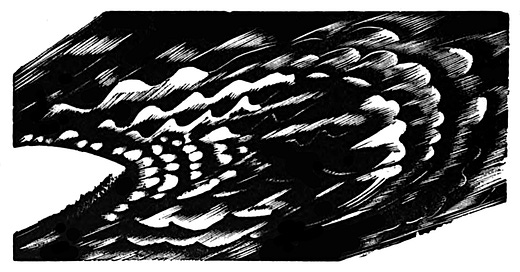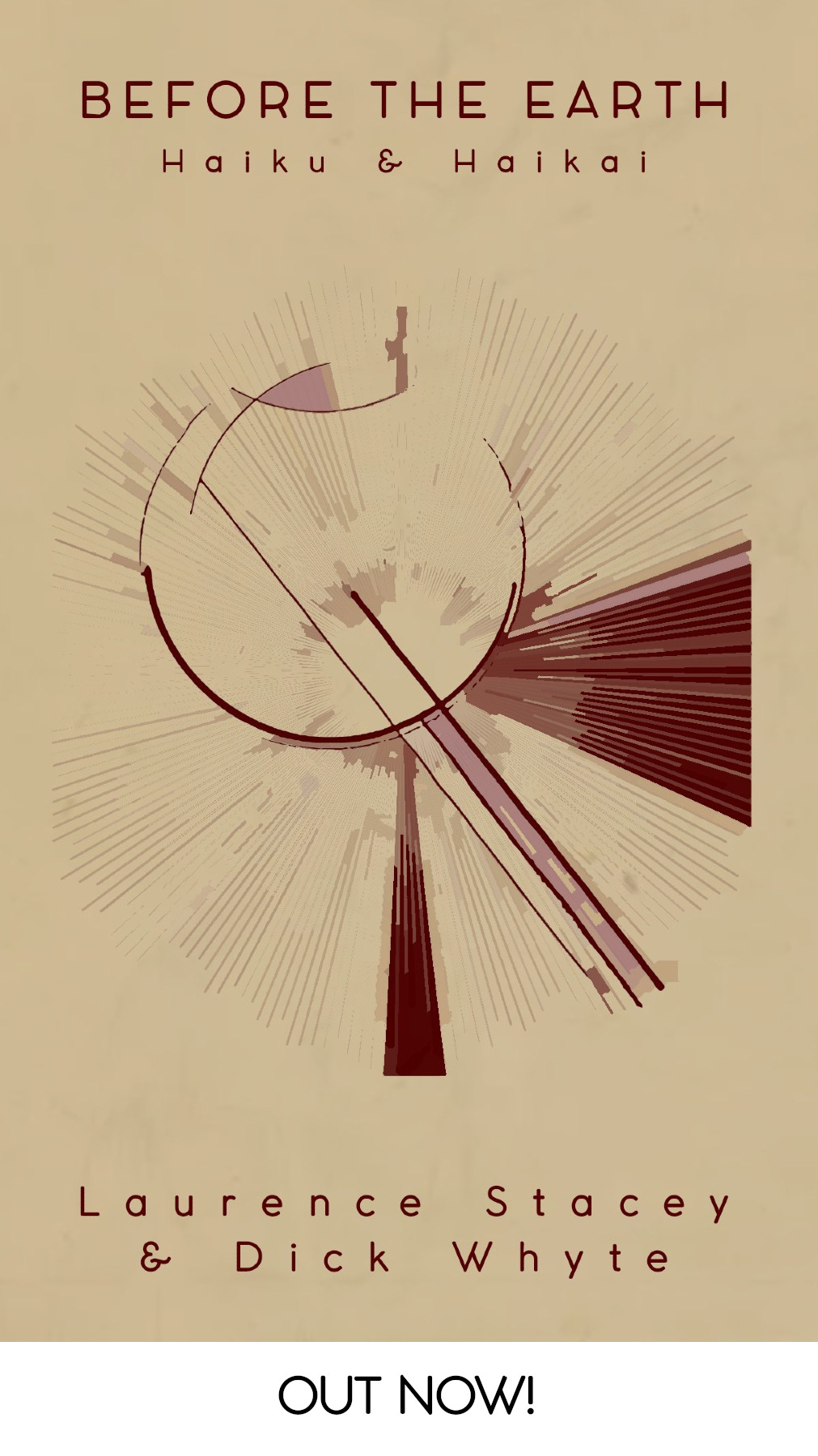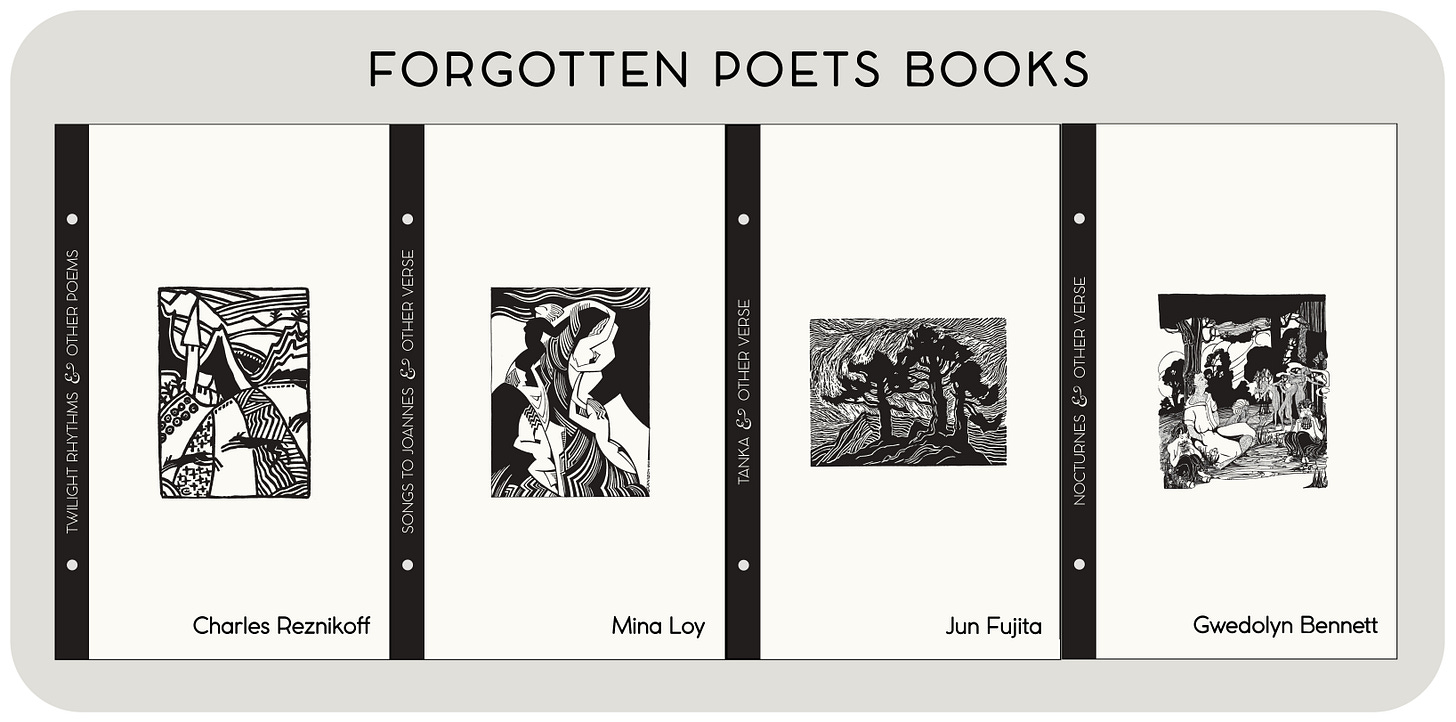—: Immortality :—
At dawn of day the stars die one by one.
They only seem to die, but do not die.
There is no death for humans, or for stars.
What we call life and death is only rhythm.
It is all cadence, measure, rest, inflection,
The poetry, the music of the spheres.
The universe is one stupendous poem
Whereof the suns and stars are words and letters,
And we frail humans, punctuation marks.
—: Mending :— Night a shop window two women mending doing invisible mending the light close to their eyes their eyes close to their work wearing out their eyes mending wearing out their life mending doing invisible mending.
—: Lovescape :— Deep blue sky Clouds Thin clouds Drifting drifting Grass Soft cool grass Breeze Soft warm breeze Hands pressing Mouths mingling Love Passion Ecstacy Faintness Calm Resting Sky Deep blue sky Clouds Thin clouds Drifting drifting
—: On Seeing the Garment Strikers March :— I see a hundred thousand marching by. I also see as many, many millions That are in spirit also marching by. And lo! Methinks this is but a rehearsal For the Exodus from the Land of Bondage— And I behold with my prophetic eyes God's chosen people crossing the Red Sea; The workers of the world, God's chosen people, Are crossing the Red Sea of Revolution. And I behold the Industrial Commonwealth, The Promised Land of plenty and of peace, Where each one, under their own fig-tree seated, Shall sing their praises to the Lord of Life.
—: “Leaves of Tea” :— I. The mule Stands Still Head bowed As in thought But Perhaps Too wise To think. II. Things of the spirit? Nay! Give me things of the flesh For things of the spirit There's all eternity. III. The potatoes The cabbages The turnips All done sir The angels said If you are thru Said the lord You may run along So they made The flowers. IV. With an imbecile smile I stare into the pit Into which I have dropped My yesterdays.
Adolf Wolff (1883–1944) was born in Brussels, in Belgium, moved to America as a boy, studied at the National Academy of Design in New York, and then the Academie Royale des Beaux Arts in Brussels. Retuning to New York, would become a well-known avant-garde sculptor and one of the leading poets in the post-1913 explosion of free-verse. Co-edited the Dada publication TNT (1919), with Man Ray and Mitchell Dawson, and taught at the New York Ferrer School, founded by Emma Goldman and Alexander Berkman, based on the teachings of Spanish anarchist Francisco Ferrer.
“There are few better examples of the anarchist artist and activist than that of the sculptor and poet Adolf Wolff, who practiced his craft and preached revolution during the heyday of the NY avant-garde, between 1912 and 1920… Anarchism, with its criticism of old standards and values, its spirit of daring and inquiry, and its emphasis on innovation and experiment, has always held a special attraction for artists. It is a natural creed for those who consider themselves aesthetically and socially in the avant-garde and therefore opposed to the existing order. Anarchists, more-over, have been less tempted to set rules for artistic creation than other groups, and more inclined to accept art for what it is as it comes from the artist's workshop. Small wonder, then, that painters and sculptors, poets and novelists should have found anarchism a congenial doctrine.” (Naumann & Avrich, ‘Adolf Wolff: Poet, Sculptor, Revolutionist, but Mostly Revolutionist’, The Art Bulletin, Sep. 1985)
Was also active in Marxist and Communist circles. Wrote the 1928 script for “what was called a ‘Mass Revolutionary Pageant’” performed by “a cast of 1000 workers directed by Edward Massey of the New Playwrights’ Theatre” with music by the New York Philharmonic Society, and a “200-voice chorus from the Singing Society of Freiheit, the Yiddish Communist daily newspaper.” (Ellen Graff, Stepping Left: Dance & Politics in NYC, 1997)
—: For Adolf Wolff :— by Dick Whyte it’s all songs: mountains, valleys, plains— a river with more than one mouth, a worm writhing in the sun almost dead— it’s all songs— or none of it is i know which i prefer!
Forgotten Poets Presents:
Forgotten Poems, a living anthology of obscure and out-of-print poetry from the late-1800s and early-1900s. Explore the archives:
More poems about the universe . . .
Helene Mullins - 6 Short Poems (1921-1928)
—: The Importance of Being :— I am but a fragment Of the universe. Yet I am not so insignificant, For without me There would be a tiny crevice In the great bowl.
Georgia Douglas Johnson - 7 Short Poems (1918-1928)
—: The Heart of a Woman (1918) :— The heart of a woman goes forth with the dawn, As a lone bird, soft winging, so restlessly on, Afar o'er life's turrets and vales does it roam In the wake of those echoes the heart calls home...
Conrad Aiken - 3 Short Poems (1916-19)
—: Variations :— Wind in the sunlit trees, and the red leaves fall: Shadows of leaves on the sunlit wall. Wind in the turning tops of the trees . . . I am reminded, seeing these, Of an afternoon, and you...
Josephine Bell - 2 Short Poems (1919)
—: My Comrade :— I am laughing with the smell of the river; I am laughing with the hidden wind swelling up over the lap and shoulders, and winding about the neck of my green world...
Alice Dunbar Nelson - 5 Short Poems (1895-1929)
—: If I Had Known (1895) :— If I had known Two years ago how drear this life should be, And crowd upon itself all strangely sad, Mayhap another song would burst from out my lips, Overflowing with the happiness of future hopes...
















"too wise
to think"
Damn!
Wow—this feels like discovering a lost scripture of revolution and rhythm. 🔥 Wolff’s voice moves between mystical awe and social fury with such fluid grace. “Immortality” reads like a whispered secret from the cosmos, while “On Seeing the Garment Strikers March” could’ve been written yesterday—still pulsing with relevance and reverence.